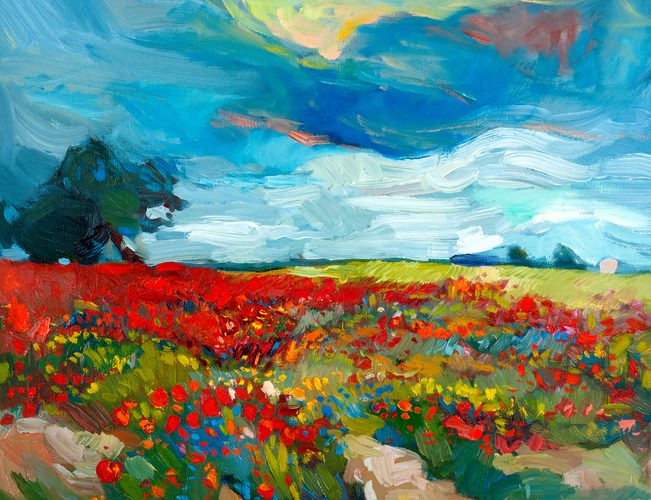With the number of older adults in Canada expected to double to more than 10 million in the next two decades, there is an urgent need to uncover new ways to help adults navigate their older years to ensure continued quality of life. To achieve this goal, the Canadian Centre for Aging & Brain Health Innovation (CC-ABHI), along with its partners, is developing, testing and disseminating innovations designed to optimize care and improve quality of life for older adults and their families.
In honour of Alzheimer’s Awareness Month, CC-ABHI will be featuring blogs on a number of innovations that it has funded to help older adults age in the setting of their choice while allowing them to maintain cognitive, emotional and physical well-being and independence as long as possible.
One such example is Art-on-the-Brain, a mobile health solution developed to address the problem of reduced access to meaningful recreation among older adults with complex health conditions. Art-on-the-Brain uses visual art presented in an interactive online environment to stimulate cognition and encourage social connections amongst users through a series of enjoyable learning and gaming activities.
Art-on-the-Brain is a web-based app that can be used on a desktop, laptop, or tablet, and can switch between modes so that it can be enjoyed individually, with a partner, or in a group setting. Most importantly, the app is evidence based and founded in neuropsychology research.
“Research shows arts-based leisure participation has positive health outcomes, such as enhanced well-being and reduced risk of dementia,” says Dr. Kelly Murphy, Psychologist at Baycrest Health Sciences and co-creator of Art-on-the-Brain. “Response from our test users has been overwhelmingly positive, with requests for access to Art-on-the-Brain as soon as the product is made publicly available.”
With the help of CC-ABHI, Art-on-the-Brain is poised to be at the forefront of the mHealth movement. It is anticipated that the app will disrupt conventional healthcare practices by embedding evidence-based technologies into the systematic workflow of healthcare professionals.
“The solution is being scientifically validated so that healthcare professionals can ‘prescribe’ it to their patients as a non-pharmacological intervention to promote brain health and wellness,” said Aviva Altschuler, Manager, Culture Arts & Innovation at Baycrest Health Sciences and co-creator of Art-on-the-Brain.
Currently, a team of national and international researchers and stakeholders have been assembled to further validate and distribute Art-on-the-Brain. Version 1 of the app is complete and has been trialed at 3 research sites with three different aging populations (normal aging, mild cognitive impairment, dementia). Version 2 of the app will be tested at partner institutions around the world commencing in the spring. A commercial product will be available in late 2017.
For more information, please contact Dr. Kelly Murphy.


